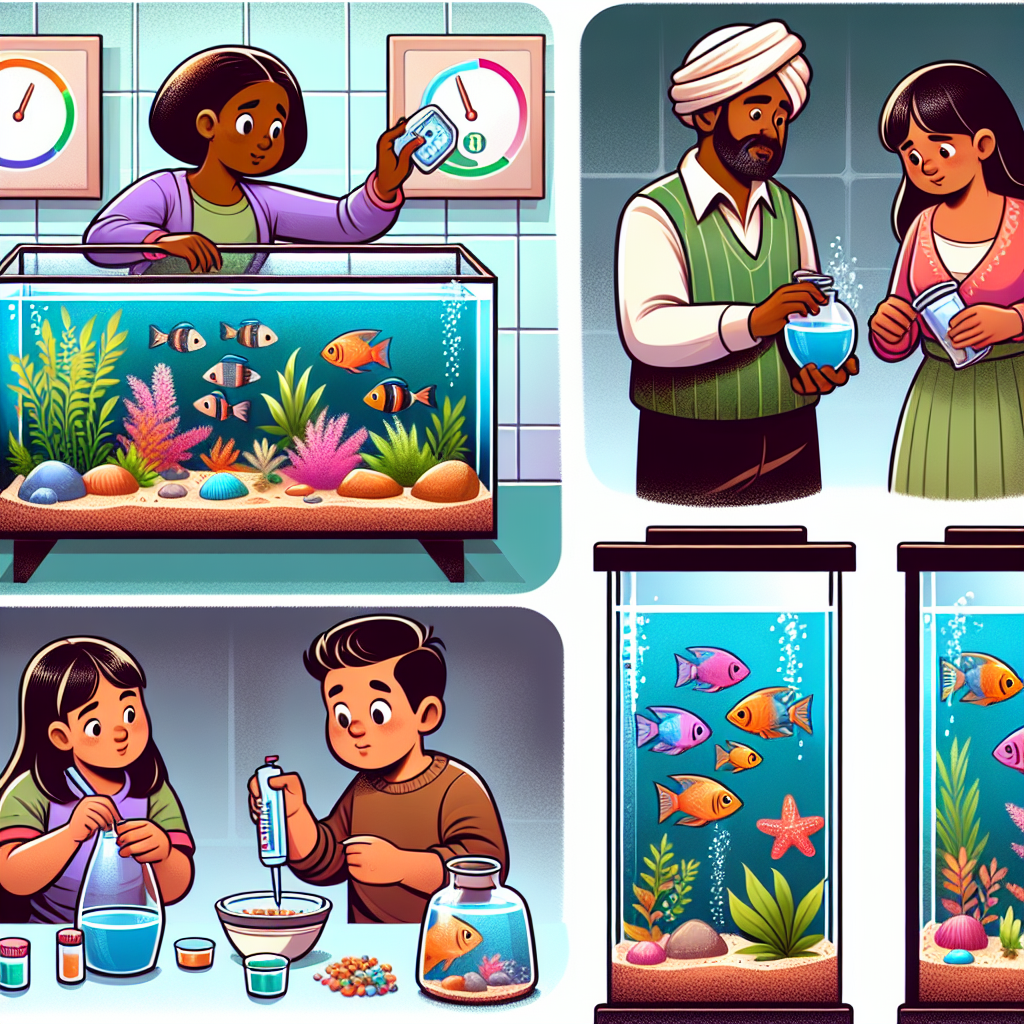Aquarium Trade Impacts
Imagine a world beneath the water's surface, where the tranquil motion of fins and gills meet the vibrant dance of color and life—a world commonly brought into our homes through the practice of keeping aquariums. Enthralling as the aquarium hobby might be, it's important for enthusiasts, especially those in high school who are at the forefront of shaping the future, to understand the profound environmental impact the aquarium trade has on freshwater species around the globe.
Trade Secrets Revealed
The journey from a wild habitat to a glass tank in someone's living room is fraught with ecological challenges. The aquarium trade is a multimillion-dollar industry, with millions of fish caught each year. These freshwater species often come from biodiverse hotspots like the Amazon River Basin, African Great Lakes, and Southeast Asian rivers, where the ecological balance is delicate.
Species Under Stress
When it comes to the well-being of these aquatic wildlife populations, the trade takes a heavy toll. The methods used to capture wild fish can be destructive, involving chemicals that stun fish but also damage habitats. This unregulated collection can lead to overfishing, threatening the survival of certain species and leading to a reduction in biodiversity.
Habitats in Peril
Beyond the direct impact on the species traded, there's substantial collateral damage to their home environments. Habitats are degraded not just by fishing methods but by the subsequent disruption of the ecological balance. Removing key species can lead to overgrowth of algae, changes in predator-prey dynamics, and even affect the overall health of coral reefs tied to freshwater systems through the water cycle, as discussed in our section on ecosystems and habitats.
Ecological Domino Effect
The ripple effect of removing species from their natural habitats can be vast. Local community structures within the ecosystems change, leading to unexpected outcomes. For example, if a species that helps control mosquito populations is depleted, this can lead to a rise in mosquito-borne diseases. More information about how species play crucial roles in their habitats can be found on our biodiversity and conservation issues page.
Conservation Efforts
In response to these challenges, conservationists and researchers are working hard to create sustainable practices within the aquarium trade. Breeding programs for popular species in captivity, efforts to establish sustainable fishing quotas, and stricter regulations on the trade are all measures being implemented to help reduce the environmental impact.
Responsible Aquarium Keeping
Aquarists—professional and hobbyist alike—can play a crucial role in mitigating these environmental impacts by making informed choices. Opting for captive-bred fish, supporting retailers who practice responsible sourcing, and educating oneself on the origins of their aquatic pets are all powerful ways to promote sustainability within the trade.

Educational Initiatives
For high school students passionate about the environment, understanding the global impact of the aquarium trade can be an eye-opening aspect of ecology studies. Education on best practices and the ecology of freshwater environments serves as a tool for fostering responsible aquarium keeping among the next generation.
Watching the Water World
To help bring these issues to life, there are numerous documentaries and videos that explore the environmental impact of the aquarium trade. They provide a visual and engaging way to understand the complex relationships between the trade, freshwater species, and the ecosystems they inhabit. Find insightful perspectives on these topics in this article from Earth.com, which features insights from aquarist Rachel O'Leary about sustainable freshwater fishkeeping.
Eco-Friendly Alternatives
On a brighter note, eco-conscious choices are available. Aquarists can look for tank decorations and setups that mimic natural habitats without causing harm. Plant-based tank setups, which focus on cultivating an underwater garden, can be a beautiful and sustainable alternative to traditional fish-centric aquariums.
Ecosystems in Equilibrium
The aquarium trade doesn't have to spell doom for freshwater species or their environments. With informed practices and a commitment to sustainability, hobbyists can help maintain ecosystems in equilibrium while still enjoying the beauty of aquatic life at home. Implementing the practices discussed in our maintenance and care section can also contribute to a more eco-friendly approach.
By becoming aware of the issues tied to the aquarium trade and actively seeking information to make ethical choices, high school students can lead the charge in transforming this pastime to one that respects and preserves the vibrant waterscapes of our planet.